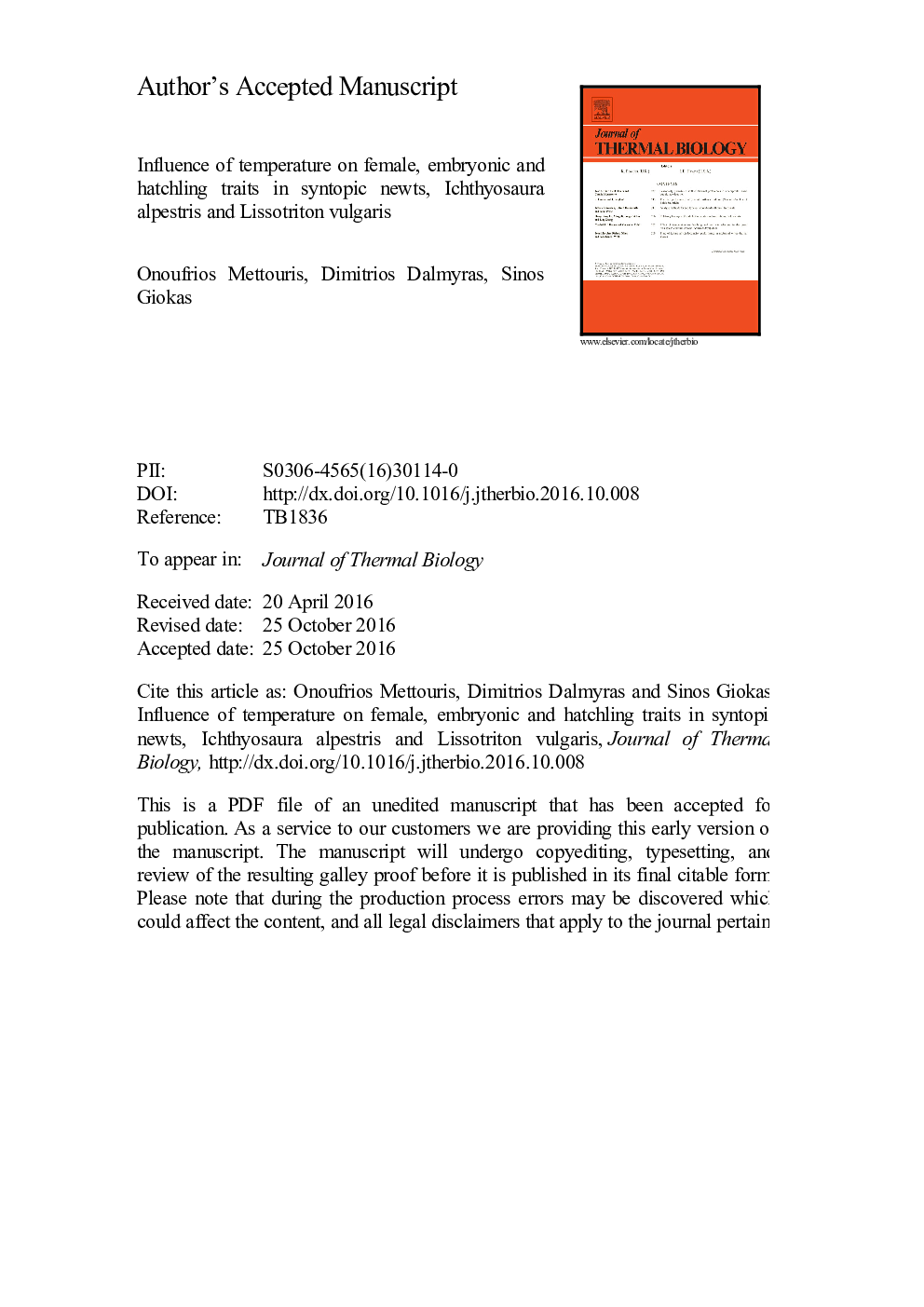| Article ID | Journal | Published Year | Pages | File Type |
|---|---|---|---|---|
| 5593530 | Journal of Thermal Biology | 2017 | 32 Pages |
Abstract
Amphibian populations have been declining globally for the last several decades, and climate change is often regarded as one of the most important factors driving these declines. Amphibians are particularly sensitive to climatic changes due to their physiological, ecological and behavioral characteristics. Here we performed a laboratory experiment to investigate how temperature affects ovipositing females, eggs and hatchlings in two syntopic populations of alpine newts, Ichthyosaura alpestris, and smooth newts, Lissotriton vulgaris. Female newts were assigned to two different oviposition temperatures (11 °C and 14 °C) for the duration of their oviposition period. Deposited eggs were equally divided and assigned to three different incubation temperatures (11 °C, 14 °C and 17 °C). We hypothesized that oviposition will be affected by temperature, that the combination of different oviposition and incubation temperatures may have an effect on embryonic and hatchling traits (embryonic mortality, days to hatch and hatchling length), and that these effects might differ between the two newt species. Temperature affected the number of deposited eggs in smooth newts, but not in alpine newts. Larval hatching success was not affected by oviposition or incubation temperature. Temperature effects on hatching time and hatchling length differed between the two species. These results suggest that temperature changes may have disparate effects on amphibian reproduction, even in syntopic taxa.
Related Topics
Life Sciences
Agricultural and Biological Sciences
Agricultural and Biological Sciences (General)
Authors
Onoufrios Mettouris, Dimitrios Dalmyras, Sinos Giokas,
